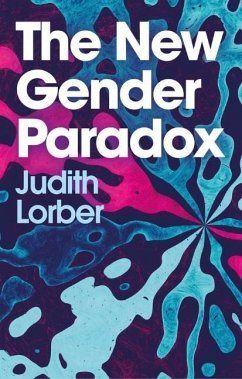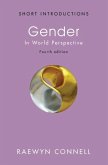Today, in Western countries, we are seeing both the fragmentation of the gender binary (the division of the social world into two and only two genders) and its persistence. Multiple genders, gender-neutral pronouns and bathrooms, X designations, and other manifestations of degendering are becoming common, and yet the two-gender structure of our social world persists. Underneath the persistence of the binary and its discriminatory norms and expectations lurks the continuance of men's power and privilege. So there is the continued need to valorize the accomplishments of women, especially those of denigrated groups.
This succinct and thoughtful book by one of the world's foremost sociologists of gender shines a light on both sides of this paradox - processes in the fragmentation of gender that are undermining the binary and processes in the performance of gender that reinforce the binary, and the pros and cons of each. The conclusion of the book discusses why we haven't had a gender revolution and how degendering would go a long way in creating gender equality.
Hinweis: Dieser Artikel kann nur an eine deutsche Lieferadresse ausgeliefert werden.
This succinct and thoughtful book by one of the world's foremost sociologists of gender shines a light on both sides of this paradox - processes in the fragmentation of gender that are undermining the binary and processes in the performance of gender that reinforce the binary, and the pros and cons of each. The conclusion of the book discusses why we haven't had a gender revolution and how degendering would go a long way in creating gender equality.
Hinweis: Dieser Artikel kann nur an eine deutsche Lieferadresse ausgeliefert werden.
"Lorber gives us a much needed and clear sighted assessment of what is and is not changing about the gender binary that says there are two and only two genders, and lays out the implications for eliminating gender inequality."
Cecilia L. Ridgeway, Stanford University
"For those interested in both the fragmentation and persistence of the gender binary, this short book is essential reading. The New Gender Paradox is engaging, thought-provoking, carefully researched, and well written. I highly recommend it!"
James W. Messerschmidt, University of Southern Maine
Cecilia L. Ridgeway, Stanford University
"For those interested in both the fragmentation and persistence of the gender binary, this short book is essential reading. The New Gender Paradox is engaging, thought-provoking, carefully researched, and well written. I highly recommend it!"
James W. Messerschmidt, University of Southern Maine








